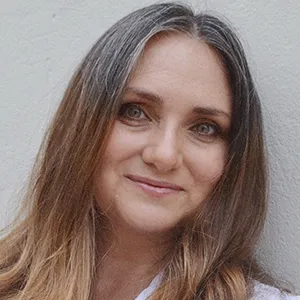Let’s face it: making New Year’s Resolutions is risky for many of us. Resolving to get fit, become organised, take up a new hobby, or finally do something we’ve been putting off is all just… risky.
First, there’s the strong likelihood that, despite our best intentions, we won’t achieve what we set out to. Goal-setting feels great, but failing to meet goals doesn’t. And that’s assuming we even remember our so-called “resolutions”. Most of us have forgotten them within the week.
Secondly, there’s the possibility that we will completely change our minds about what we want to achieve for the year, anyway. After all, surely the best time to think strategically about the future is not straight after Christmas when we’ve just crawled to the end of a work year. How much perspective can anyone be expected to have on the first day of a new year when we’ve only just put the last year to bed?
Finally, there’s always the chance that we will execute our New Year’s resolutions perfectly, only to discover they were the wrong ones!
So, in the spirit of this common human experience of setting New Year’s resolutions, here are five resolutions that are guaranteed to take the risk out of resolution-making. Better yet, we think they could even change the world.
1. Commit to Clear Eyes
It’s not easy to keep looking at a world that seems so broken. At the Leprosy Mission Australia, we know this too well! Our friends working in the disability sector often talk about disabilities being “invisible”, like mental health challenges and the additional emotional load that invisibility can place on someone who is experiencing it.
For people who are affected by leprosy, there can be both a visible and invisible component to the suffering – both of which can be magnified by misinformation and social stigma. But if we’re going to change the world, we’re going to all need to be clear-eyed about leprosy and face the reality that leprosy really is “still a thing”.
2. Cultivate Courageous Hearts
Having acknowledged that the ancient disease of leprosy is “still a thing,” we will need to develop courageous hearts.
Why courageous? Because the truth is that leprosy statistics can be disheartening.
Here, we have a CURABLE disease, where international organisations cover the cost of Multi-Drug Therapy treatment. And still, we haven’t been able to stop this ancient disease. Millions of people in the world are still affected by leprosy. Someone in the world is still diagnosed with leprosy every two minutes.
Even worse, 50 of those new diagnoses made each day are for children, often from the poorest, most underprivileged communities.
Social stigma, misinformation, and the logistics of remote communities are all factors. We’ll need courageous hearts to face these heartbreaking truths.
3. Extend Willing Hands
All the knowledge and understanding in the world is useless if we aren’t prepared to roll up our sleeves and do something. And that’s easier said than done in a social media world where the world’s many needs are continually presented to us in bite-sized parcels of information.
Compassion fatigue— the soul-level exhaustion resulting from caring too much about too many things for too long—is a real danger for anyone alive today. None of us can do everything we’re asked to do. We can not engage in every worthy cause.
However, we can be willing to extend our hands when our hearts are moved. We can take action when it matters by engaging with organisations’ campaigns, sharing information with our friends, and participating in movements characterised by hope and strategy.
4. Engage Strategic Minds
The Leprosy Mission Australia is part of a global movement that has been working to end leprosy for 150 years. By partnering with researchers, medical professionals, international development agencies, peak community organisations and authorities, we are working deliberately and strategically to eliminate leprosy transmission by 2030.
And it’s genuinely achievable! By supporting partners who work on the ground in countries like India, Timor Leste and Nigeria— all places where the spread of leprosy is still at a critical level and social stigma is a significant barrier to progress— we can see obstacles overcome, one at a time and communities changed.
5. Develop Tenacious Spirits
In his famous “Movement Action Plan” (MAP), campaign strategist Bill Moyer outlines eight stages common to movements for positive change. These stages offer helpful insights for those of us engaged in the fight to end leprosy.
“For those encountering the MAP model for the first time, the biggest ‘Aha’ usually comes with Moyer’s stage five. The previous stage — stage four — is when protest movements take off, holding attention-grabbing demonstrations and experiencing rapid growth. But what comes next is not a smooth stroll to success. Instead, according to Moyer, the flurry of activity is followed by ‘Perception of Failure.’
Moyer writes, “After a year or two, the high hopes of instant victory in the movement take-off stage inevitably turn into despair as some activists begin to believe that their movement is failing. It has not achieved its goals and, in their eyes, it has not had any ‘real’ victories.”
At this point many people “burn out or drop out because of the exhaustion” … “All of this, Moyer writes, combines to create “a self-fulfilling prophecy that prevents or limits [movement] success.”
Moyer’s insight highlights how easy it is to become discouraged—even to the point of imagining that our efforts have achieved nothing and giving up, often right before we reach our goals.
By listing it as a “normal” stage that all change-making movements face, Moyer hopes to inspire us to be extra tenacious in spirit—to remain hopeful, willing, and strategic when we experience these moments. After all, the breakthrough we want to see—a world free from leprosy—may just happen in our lifetime!


